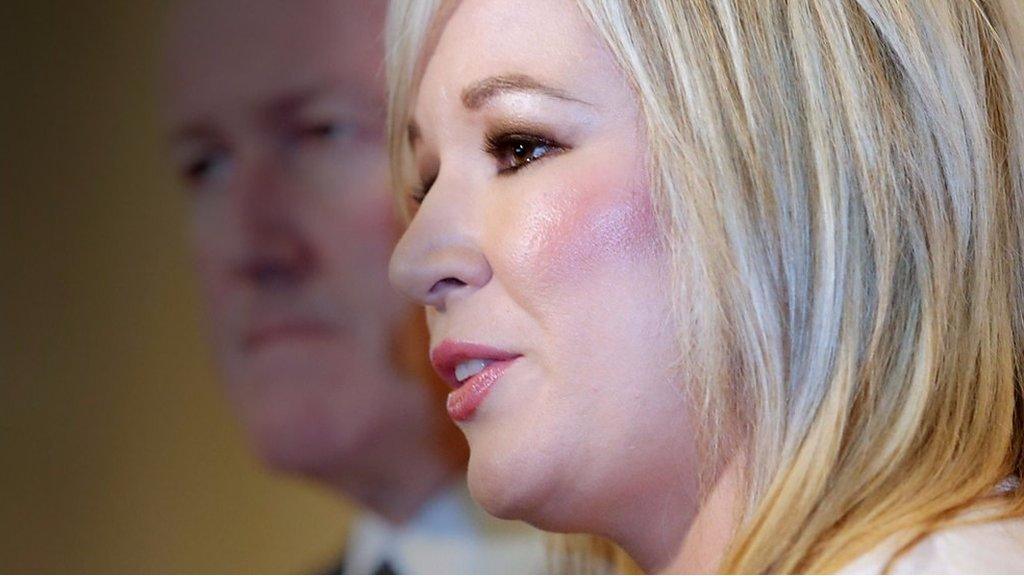Could this be Gerry Adams' last year as SF president?
- Published
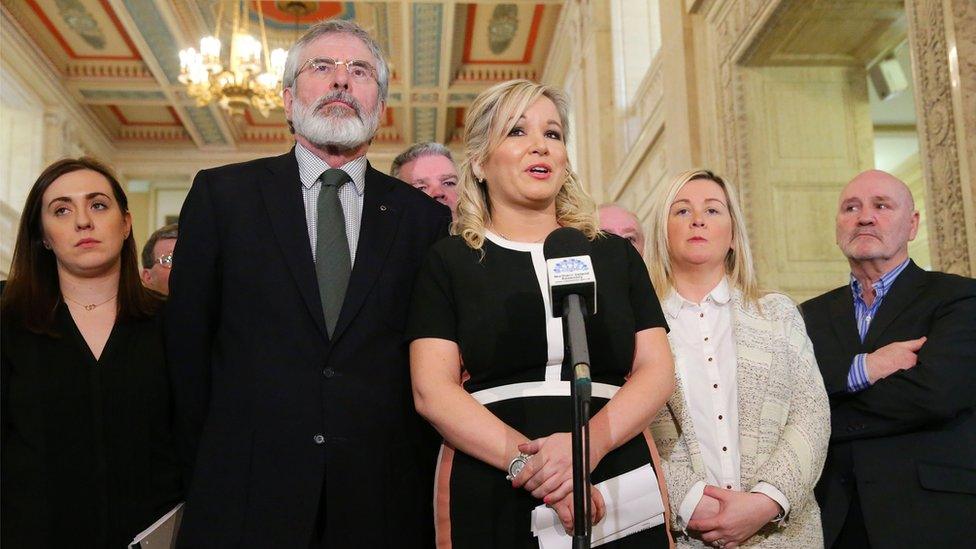
There is considerable speculation that this could be Gerry Adams' last year in the job
After months of stalemate at Stormont, November and December could provide some radical change.
This weekend, Sinn Féin activists meet for their annual ard fhéis (annual conference).
Gerry Adams has indicated that he will use his speech to spell out more details of the plan for change in the leadership of the party he previously agreed with the late Martin McGuinness.
We have already seen one stage in this plan, with the appointment of Michelle O'Neill as Sinn Féin's leader north of the border.
Having served as Sinn Féin president since 1983, Mr Adams has made it clear he will stay on for another year.
But there is considerable speculation that this could be his last year in the job and there certainly is a nostalgic tone to his most recent article for the Andersonstown News in which he recalls memories of ard fhéiseanna going back to the late 1960s.
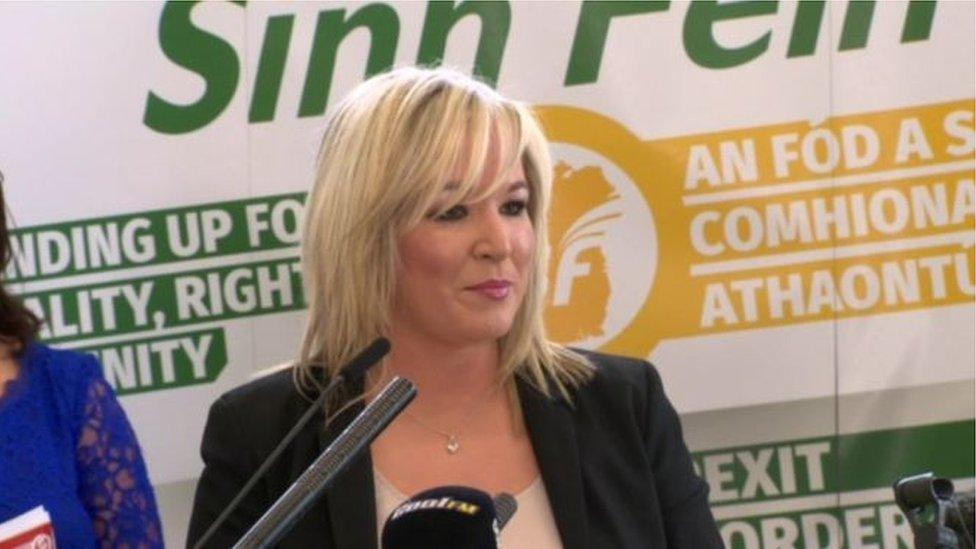
The plan for change in the leadership of the party began with the appointment of Michelle O'Neill as Sinn Féin's Stormont leader
In advance of what he termed an "historic gathering", Sinn Féin's Pearse Doherty ruled himself out of any contest to become the next leader - according to the party's newspaper An Phoblacht, external.
On the face of it, that appears to point to the future elevation of vice president Mary Lou McDonald.
Given that Mr Adams says a plan devised some time ago is now being rolled out, it is notable that Mary Lou McDonald played a very visible role when Michelle O'Neill was confirmed in her role at the Stormont Assembly back in January.
Whatever the detail of his announcement, Mr Adams will be able to survey a remarkable 34 years in office which has seen the republican movement move from backing IRA violence to adopting peaceful politics.
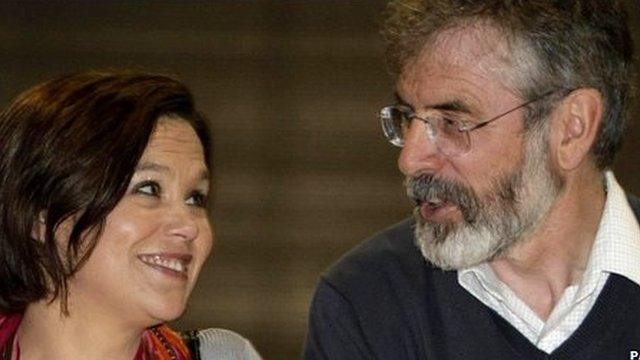
Could the coming months see the future elevation of vice president Mary Lou McDonald?
Sinn Féin has supplanted the SDLP as the majority voice of northern nationalism and become a potent force in the Dáil (Irish Parliament).
The party's critics might never forgive its previous support for the IRA, or its current hard line on the restoration of devolution.
But they cannot argue with its electoral achievements under Mr Adams' leadership.
The weekend after the Sinn Féin ard fheis, the DUP will meet for its conference at a hotel in County Down.
This gathering might not be able to match the personal drama of Mr Adams' announcement.
But the DUP's proceedings will attract an unprecedented audience, given the party's role in propping up Theresa May in Downing Street.
Embarrassment
Local media will be jostling for space with correspondents from London who have never previously darkened the doors of a DUP conference.
Expect the DUP to trumpet their "comeback" Westminster election in June and to proclaim how they used their influence to negotiate a good deal for Northern Ireland.
The absence of a Stormont Executive is an embarrassment, especially for Arlene Foster who relies on it for her power base.
However, DUP politicians will insist the debacle is not of their making while maintaining they are right to stand firm against Sinn Féin in relation to an Irish language act.
The £50m promised down payment on the DUP's £1bn deal may help the party's narrative
However, more details on when and how the remaining 95% of the cash will be delivered would help Mrs Foster forestall criticism of the delay in releasing money promised for tackling mental health problems, deprivation and the installation of ultra-fast broadband.
There is a school of thought that once the two main parties get their set-piece gatherings over and done with, their negotiators may enjoy more flexibility to return to the talks table and find those elusive compromises.
Set against that view, we have the public utterances of DUP politicians apparently impatient for direct rule.
By contrast, Sinn Féin politicians call for London and Dublin to reinvigorate talk of a joint approach which dates back a decade to the days before the 2006 St Andrews Agreement.
The ard fhéis will also reiterate the republican view that failure to secure Special EU status for Northern Ireland after Brexit should trigger a border poll on a united Ireland.
So the November party conferences may presage a new era in politics.
But whether they herald any greater willingness to overcome the Stormont stand-off is harder to predict.
- Published26 June 2017
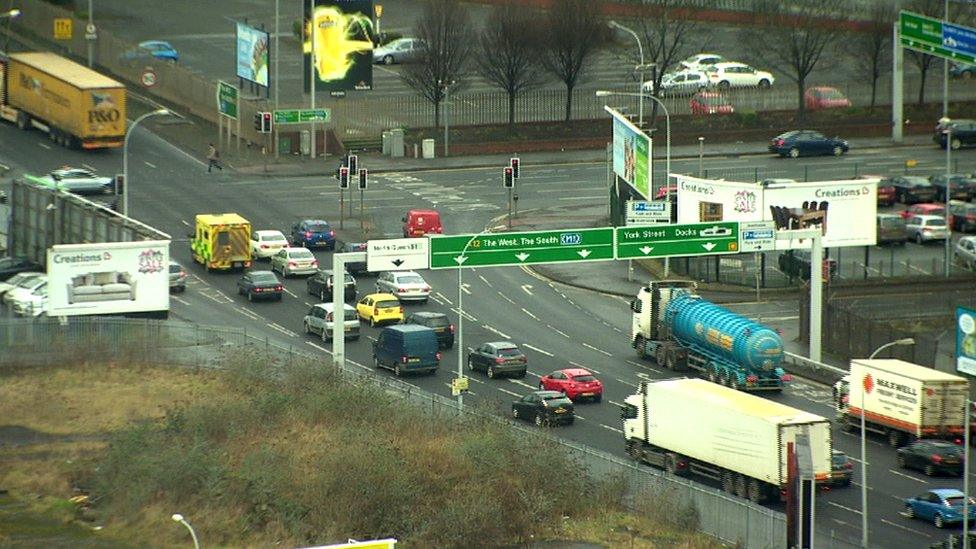
- Published23 January 2017
